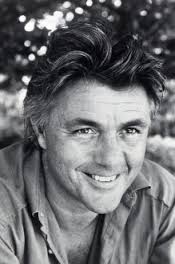John Irving [1942-0] American      
Rank: 102
Novelist
John Winslow Irving is an American novelist and Academy Award-winning screenwriter.
Irving achieved critical and popular acclaim after the international success of The World According to Garp in 1978. Alone, Imagination, Sympathy, Architecture, Courage, Family, Freedom, History, Learning, Legal, Society, Teacher |  |